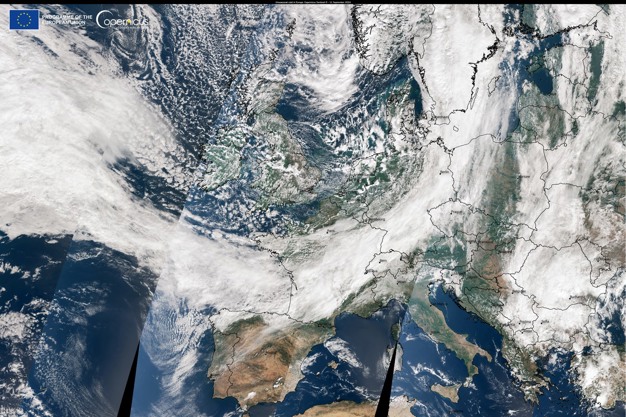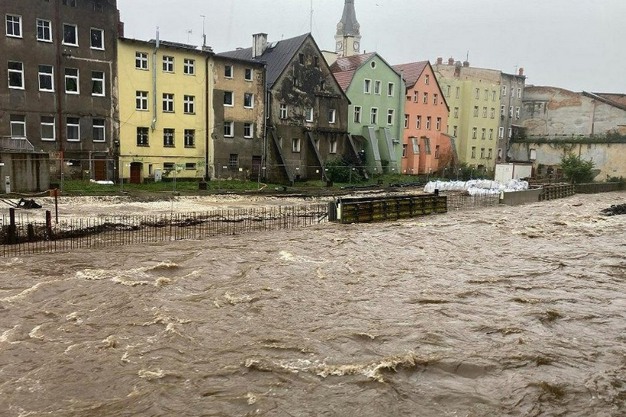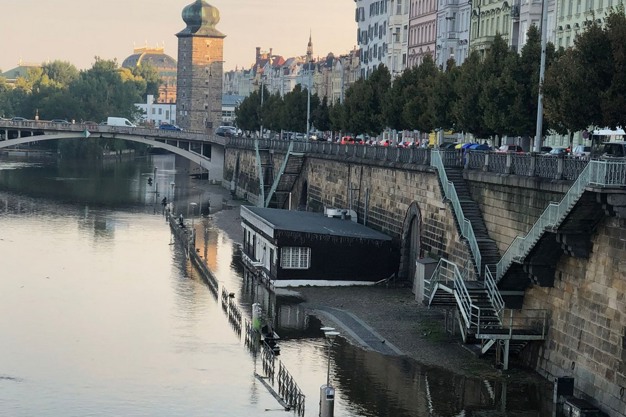The fresh fruit and vegetable sectors across several central European countries have been disrupted by Storm Boris, which brought heavy rainfall since Thursday, 12 September, 2024. This led to near record flash floods across parts of Austria, Romania, Poland, Czechia, Slovakia, Hungary and Moldova. Around 17 people are said to have died, with a few people missing. Thousands of people in affected towns and localities across these countries have had to be temporarily relocated as several rivers burst their banks.
Several warnings have been issued by authorities in these countries, as well as a state of emergency was declared in Slovakia's capital, Bratislava. Meteorologists report that the heavy rains were accompanied by gusting storm winds that they describe as sometimes hurricane-force wind gusts of 114 km/h and up to 131 km/h over the past weekend.
Austria clearing places after storm
Clearances are currently being carried out in many places, including at Schneider's Gemüseland in Raasdorf in Lower Austria. There will be no more harvesting this week, reports director Barbara Kargl. "We can't say much about the exact extent of the damage at the moment. We were almost done with the harvesting of the onions, but as far as sweet corn and carrots are concerned, we are still in the middle of the harvest season. I'm also holding my breath for the winter crops that should be harvested soon."
Especially in open-field cultivation, the weather extremes seem to get worse over the years. This raises the question of whether more can be done to prepare for extreme weather events. "Of course, crop protection remains a difficult story in open-field vegetables, but we can think about larger storage capacities and the preventive calculation of larger volumes for storage to prevent shortages. This may be more difficult for the fresh market, but certainly in the frozen food segment, in which we are also active, this is certainly one of the options," Kargl notes.
Romania
The county hardest hit by the flooding, which authorities say has hit new record levels, is in Galati where six people lost their lives. According to Ilie Ghilerdea, Buyer Fresh Fruits and Vegetables at Select Fruits based in Bucharest, Romania, "Galati is where some of the biggest areas for the cultivation of vegetable roots are situated in Romania. Onions mainly carrots are also grown there." Other counties affected by flooding are Vaslui and lasi. Relief efforts are still underway with houses, bridges and a lot of infrastructure badly damaged by the flooding.
 This Copernicus Sentinel-3 image, acquired on 11 September 2024, shows a cold front approaching the coasts of France, Belgium and the Netherlands on its way to make heavy landfall in Central Europe.
This Copernicus Sentinel-3 image, acquired on 11 September 2024, shows a cold front approaching the coasts of France, Belgium and the Netherlands on its way to make heavy landfall in Central Europe.
Damage not so great in Moldova
Moldova was also hit by Cyclone Boris, but the damage was not as great as in neighbouring Romania and other Central European countries. The centre and south of the country in particular, where many grapes are grown, had to deal with a considerable amount of water.
A grape grower in the south of the country, about 100 km from Galati, a Romanian district where six people died when the Danube burst its banks, says that 60 mm fell in his village on Sunday. The fields were not flooded, there was no damage to the infrastructure and plants, but of the Moldova grapes that have yet to be picked – the other varieties had fortunately already been harvested – about 30% will be lost due to cracking and the rest will not be able to be stored for long after harvest. The eating quality is still there. According to the grower, there is also a positive side to the story: the water supplies are being replenished, which can only benefit the production in the long term.
In the centre of the country, a plum and apple grower reports that most plums are already in storage, but that the damage to the apples still hanging on the trees is also expected to be limited. The exact damage cannot yet be measured, because access to the fields is currently difficult. Approximately 40 mm of rain has fallen in the past two days. The trees themselves have not suffered any damage, also because the company had taken the possibility of such weather conditions into account when planting them. Incidentally, transport to Western Europe is experiencing less disruption than initially expected. A few hours should be added to the waiting time at the border crossings, but the delays are manageable, the grower indicates based on messages on social media.
Slovakia
In contrast to neighbouring countries, the weather damage in Slovakian agriculture seems to have been limited so far, confirms Peter Turlik, Managing Director of the leading fruit cooperative Bonum, based in the capital Bratislava. "Fortunately, our fruit growers have only suffered comparatively minor damage. Nevertheless, we have already had a very difficult season: the late frosts in spring were followed by heat and corresponding damage in the orchards and now we are confronted with floods and storms. We are slowly but surely asking ourselves what else is to come," says Turlik.
 Southern Poland this weekend, where the Red Cross spoke of "enormous needs" after another regionwide European flood disaster firmly linked to climate change. (Photo: Polish Red Cross)
Southern Poland this weekend, where the Red Cross spoke of "enormous needs" after another regionwide European flood disaster firmly linked to climate change. (Photo: Polish Red Cross)
Poland to declare state of disaster
The extent of the damage in Poland has caused their Prime Minister to indicate that he will declare a state of disaster. A Polish grower and exporter noted, "Unfortunately, the flood situation in Poland is unpredictable and changes from hour to hour. The next major wave of flooding is reportedly forecast for Wednesday, so we're in a state of worry. Fortunately, the company and employees are safe, but we are surrounded by many flooded towns."

The Vltava river in Prague, capital city of the Czech Republic, is overflowing its banks too. Picture: Aurora Windfuhr.
Hungary sees epicentre of storm
In Hungary's capital city, Budapest along the Danube River has been fortified for the wave of water that is expected to raise water levels close to record highs. A Hungarian meteorologist Balázs Berceli from the weather monitoring website idokep.hu said, "The center of Cyclone Boris, which caused extreme weather in many parts of our country, as well as in neighbouring countries, moved over Hungary on the night from Saturday to Sunday. Around 1 o'clock to be exact just above Budapest was the center of Cyclone Boris."
Government authorities in all the affected countries are working around the clock, while the true extent of the damage on farming infrastructure and plantations will still be felt for a long time after this significant weather event.
